Discurso poético y formación de los ciudadanos en República x
Discurso poético y formación de los ciudadanos en República x
Main Article Content
Abstract
This article is focused on Plato’s critique of mimetic arts on Republic x, which concludes with the expel of the poets from the city. This critique has epistemic issues, and other directed to the effects those arts have. However, in some other passages from Republic, we can find that Plato estimates poetry as an educational mean, which does not match the vision on Republic x. To explain that tension, I follow the reading of Republic that states that Plato only expels from the city to certain kind of poetry, this is, to the tragic poets, because they do not have knowledge about their works. Nevertheless, this does not erase the core relevance of mimetic arts in the citizens upbringing.
Downloads
Article Details
References (SEE)
Ariza, S. (2017). Desterrando formas poéticas en la República de Platón. Revista de Estudios Sociales. doi: https://doi.org/10.7440/res34.2009.01
Castillo, M. (2016). A través del espejo y lo que Platón encontró allí. Mímesis entre lógos y alétheia. Praxis Filosófica, 42, 33–58. doi: https://doi.org/10.25100/pfilosofica.v0i42.3166
Derrida, J. (1975). La farmacia de Platón. En La diseminación. Madrid: Fundamentos. Recuperado de https://bit.ly/3kerkuB
Gomez, L. (2016). Plato on the Political Role of Poetry: The Expulsion of the Traditional Poets and the Reform of Poetry. Praxis Filosófica, 43, 37–56. doi: https://doi.org/10.25100/pfilosofica.
v0i43.3154
Janko, R. (1987). Introduction. En Aristóteles, Poetics with the Tractaus Coislinianus, reconstruction of Poetics ii, and the fragments of the On poets (pp. ix-xxiv). Indianápolis-Cambridge: HackettPublishing Company.
Havelock, E. (1994). Prefacio a Platón. España: Visor.
Monserrat, J. (2011). Procesos cognitivos y crítica política: ¿una política ilustrada en sentido platónico? Crítica, Revista Hispanoamericana de Filosofía, 43(129), 31–52. Recuperado de https://bit.ly/397KgFa
Ordóñez, V. (2012). El lugar de la tragedia y la comedia en el Estado platónico. Revista Internacional de Filosofía, 55, 143–156. Recuperado de https://bit.ly/2YUt18m
Pájaro, C. (2014). De Platón para los poetas: crítica, censura y destierro. Eidos, 109–144. Recuperado de https://bit.ly/3kh6YB7
Platón. (1988). República. (Trad. C. Eggers Lan). Madrid: Gredos.
Platón. (2015a). Apología. En J. Calonge, E. Lledó y C. García (trads.), Diálogos (vol. i; pp. 148–186). Madrid: Gredos.
Platón. (2015b). Ion. En J. Calonge, E. Lledó y C. García (trads.), Diálogos (vol. i; pp. 249–269).
Madrid: Gredos.
Solana, J. (2007). Platón: la transición a la ciudad ideal. L’Antiquité Classique, 76, 51–62.
Vásquez-Lozano, A. (2014). Trofé y catarsis: sobre la conexión entre poesía y emoción en Platón. Eidos, 20, 53-74. Recuperado de https://bit.ly/3kg43sn
Von der Walde, G. (2010). Poesía y mentira. La crítica de Platón a las poéticas de Homero, Hesíodo y Píndaro en el Ion y en República 2. Bogotá: Universidad de los Andes.








